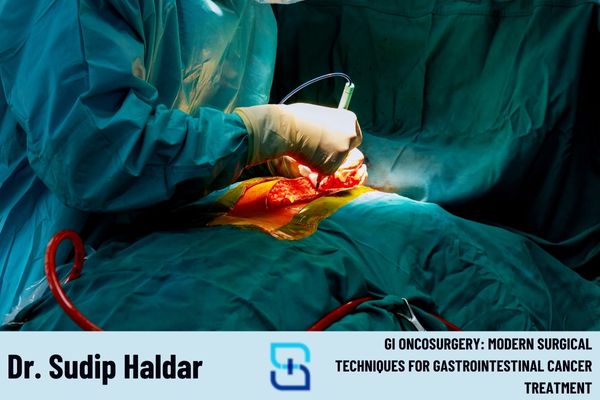Understanding Radical Cystectomy: What You Need to Know About Bladder Cancer Surgery
Understanding Radical Cystectomy: What You Need to Know About Bladder Cancer Surgery Bladder cancer is a serious health condition that requires prompt and effective treatment. One of the most common and effective surgical options for advanced bladder cancer is radical cystectomy. In this blog, we’ll explore the ins and outs of radical cystectomy, from its indications and procedure to the recovery process, with expert insights from Dr. Sudip Haldar, a leading specialist in urological cancer surgery. What Is Radical Cystectomy? Radical cystectomy is a major surgical procedure primarily used to treat muscle-invasive bladder cancer (MIBC). In this surgery, the entire bladder is removed, along with surrounding tissues such as lymph nodes and, in some cases, reproductive organs. The goal of this procedure is to remove the cancerous tissue and prevent the spread of cancer to other parts of the body. There are two main reasons why radical cystectomy may be recommended: Why Is Radical Cystectomy Performed? Radical cystectomy is typically recommended when bladder cancer is diagnosed in its advanced stages. It is often considered when: In some cases, early-stage cancers or cancers confined to the inner layers of the bladder may also require cystectomy if other treatments fail. Dr. Sudip Haldar emphasizes that radical cystectomy can often be a life-saving procedure, especially for patients diagnosed with aggressive forms of bladder cancer. When Is Radical Cystectomy Recommended? Radical cystectomy is generally recommended when the cancer is diagnosed at an advanced stage, often after the cancer has spread to deeper layers of the bladder wall. However, it may also be considered for recurrent or high-risk bladder cancers. Several factors determine whether this surgery is appropriate, including: In all cases, a multidisciplinary team of healthcare providers, including urologists, oncologists, and pathologists, will work together to decide if radical cystectomy is the best option. What Happens During Radical Cystectomy? Radical cystectomy is a complex and major surgery that typically requires general anesthesia. Here’s what happens during the procedure: The entire procedure may take 4 to 6 hours, depending on the complexity of the surgery. What to Expect After the Surgery After a radical cystectomy, recovery is a gradual process. It is common for patients to remain in the hospital for several days to ensure proper healing. Here’s what to expect post-surgery: Hospital Stay Physical and Emotional Recovery Risks and Complications of Radical Cystectomy Like all major surgeries, radical cystectomy carries certain risks and potential complications, including: Life After Radical Cystectomy Life after radical cystectomy can be challenging, but many patients go on to live active and fulfilling lives. With the proper care, support, and follow-up treatment, it is possible to adapt to life without a bladder. Key factors to consider: Conclusion Radical cystectomy is a critical procedure for patients diagnosed with advanced or muscle-invasive bladder cancer. While the surgery involves significant changes to the urinary system, it offers patients the chance to eliminate cancer and significantly improve their chances of survival. With the right care, support, and lifestyle adjustments, many patients successfully navigate life after cystectomy and go on to lead fulfilling lives. If you or a loved one is facing bladder cancer and considering radical cystectomy, it’s essential to consult with an experienced surgical oncologist. Dr. Sudip Haldar, an expert in bladder cancer surgery, can provide valuable insights and guidance to help you make an informed decision about your treatment options.
Understanding Radical Cystectomy: What You Need to Know About Bladder Cancer Surgery Read More »


